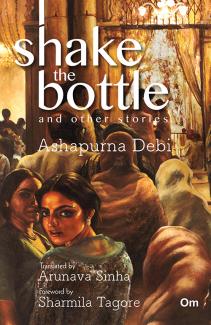SHAKE THE BOTTLE
Availability :
In Stock
₹ 238.95
M.R.P.:₹ 295
You
Save: ₹56.05 (19.00% OFF)
(Inclusive
of all taxes)
Delivery:
₹ 0.00 Delivery charge
Author:
ASHAPURNA DEBI
Publisher:
OM BOOKS INTERNATIONAL
ISBN-13:
9789383202126
Publishing Year:
2018-08-02
No. of Pages:
288
Weight:
200 grm
Language:
English
Book Binding:
Paperback











